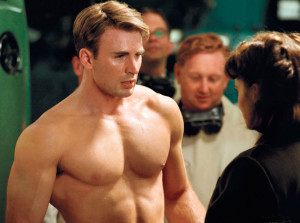(This column is posted at www.StevenSavage.com Steve’s Tumblr)
Management consultant Erwin Van Der Koogh wrote an essay on tech and how women are treated, “This industry and living life on the lowest difficulty setting,” Go read the entire thing, but he pretty much sums it up by noting that at a tech conference his worst fear is making a mistake, but a female colleague’s worst fear is sexual assault and harassment.
It pretty much sums up issues of women in tech in that they face inordinate issues men don’t face, and these issues are pretty horrific. When people say white male is the lowest difficulty setting in, say, tech, that’s because we’re not facing the same challenges. We’re playing a game with infinite lives; women are playing Dark Souls III.
His experiences and those of the woman he writes about are not alone. I’ve talked about bias in tech to a room nodding sadly. Everyone in tech who listens can hear stories about sexism. Just watch the news in tech, and stories of bias pop up repeatedly.
It’s wrong.
It’s wrong on any number of ethical levels, moral levels, societal levels, and civic levels. Bigotry of any kind is corrosive, acid on the soul, eating away decent things.
It’s wrong in tech, an industry that should put ideas and work and creativity first – but too often doesn’t. When someone’s gender matters more than their work, then that’s anathema to what we’re supposedly about.
And as a white guy – and if you’re one of me in tech – as Erwin points out, we need to make an effort to solve it. I’ll put it simply – we’re having a comparatively easy time, we have the (at times unwarranted) attention, so we have the ability to make a difference, and we should. Else we’re letting our industry be something it shouldn’t be, as well as letting our fellow techs drag themselves down with their own bias.
Tech should be what we think it is.
Erwin proposes solutions where we work on ourselves, which is vital. Start with yourself – I can thank my lucky stars I had several female managers and co-workers that helped me see sexism and deal with it.
I’d say we also need to call out sexism in tech when possible, be it in person or on Twitter or whatever. Just get into the habit of it.
However a big thing we should do is change the culture of tech. To do that, there’s plenty of places to get involved in REALLY changing the culture – the organizations. If you want to make a difference promote these or help out. We change the culture by getting involved and supporting women getting into tech – and staying there.
- Girl Develop IT – A nonprofit that provides accessible programs for women who want to learn coding.
- Girls Learning Code – A Canadian non-profit that focuses on helping young women learn technical skills in a supportive atmosphere.
- Girls Teaching Girls To Code – A Bay Area program where women in CS teach Bay Area high school girls to code.
- Grace Hopper Celebration – Produced by the Anita Borg institute, this is a celebration of women in computing.
- Ladies Learning Code – A Canadian non-profit that focuses on helping people learn beginner technical skills in a comfortable, social way.
- Made With Code – Promotes women in coding with projects, events, and mentoring. Has several alliances and supporters.
- Mothercoders – An organization focused on helping mothers get tech-savvy and up-to-date for this economy
- National Center For Women And Information Technology – Focuses on correcting gender imbalance in technology, and bringing the balance of diversity to the industry.
- Rails Girls – A worldwide group that works to empower women with technology.
- The Ada Initiative – An organization that supports women in technology, with a heavy emphasis on codes of conduct, training, and an embrace of open source.
- Tech Girls Canada – Provides national leadership for the various industry groups in Canada encouraging women in tech careers.
- Girls Make Games – A series of international summer camps encouraging girls to explore the world of video games.
The resources are there.
– Steve

